Improving Sustainable Living, ITS Governor Implements Waste Recovery Concept
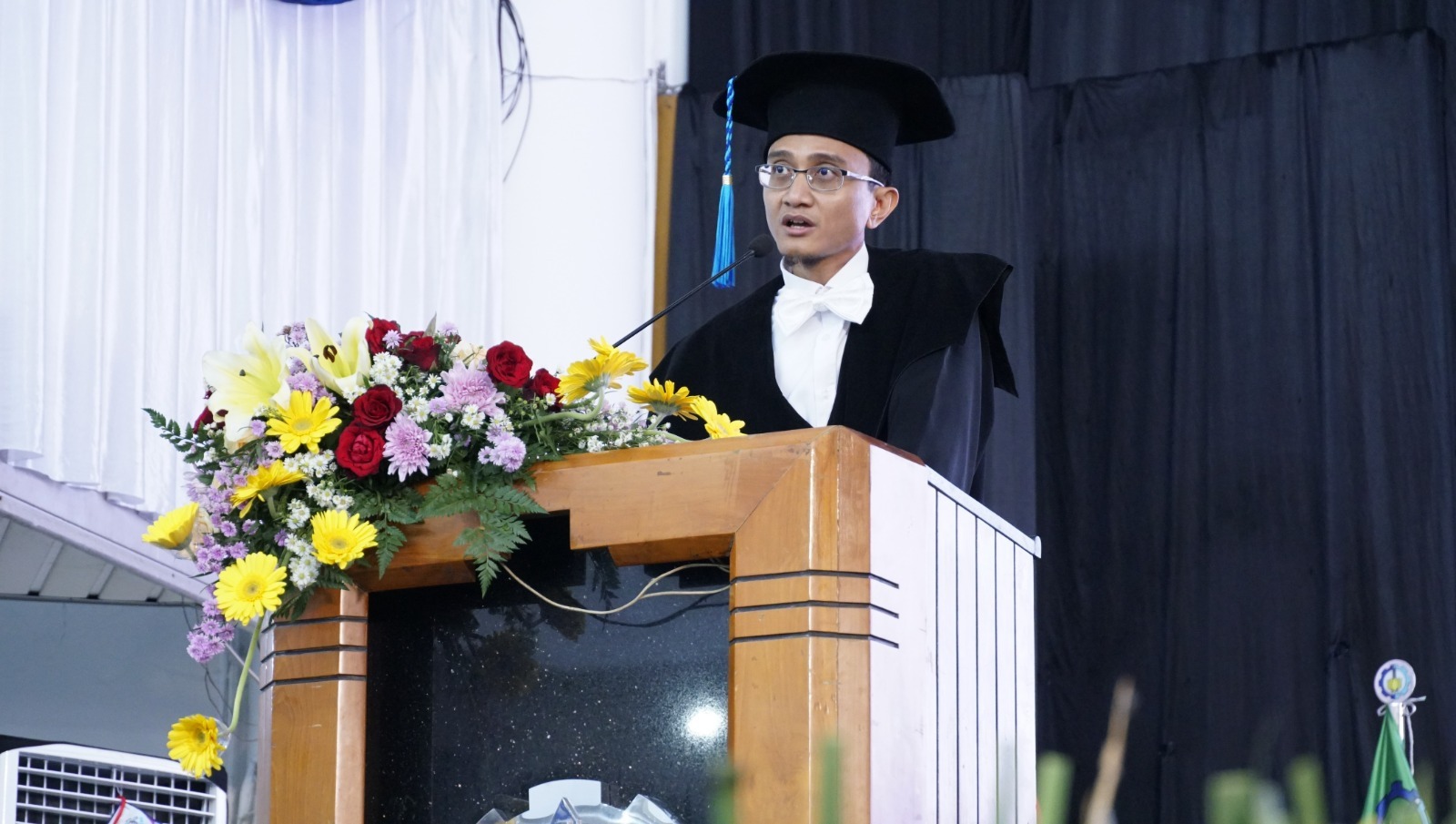
Prof Ir Arseto Yekti Bagastyo ST MT MPhil Ph.D. when delivering a scientific oration at his inauguration procession as ITS’s 175th professor regarding Waste Recovery Concept
ITS Campus, ITS News – Waste not only needs to be processed but also needs to be recovered. That is the principle held by the 175th Professor of the Institut Teknologi Sepuluh Nopember (ITS) Prof. Ir Arseto Yekti Bagastyo ST MT MPhil PhD. A number of his contributions in developing waste processing and recovery technology support sustainable living through the circulation of natural resources and raw materials in nature.
This ITS Environmental Engineering Department lecturer emphasized that every human activity inevitably produces waste. However, waste management costs are often still considered expensive from an investment and operational perspective. Therefore, the development of waste processing and recovery technology must be focused on high effectiveness, energy efficiency, low process costs, and recovery products with great economic value.
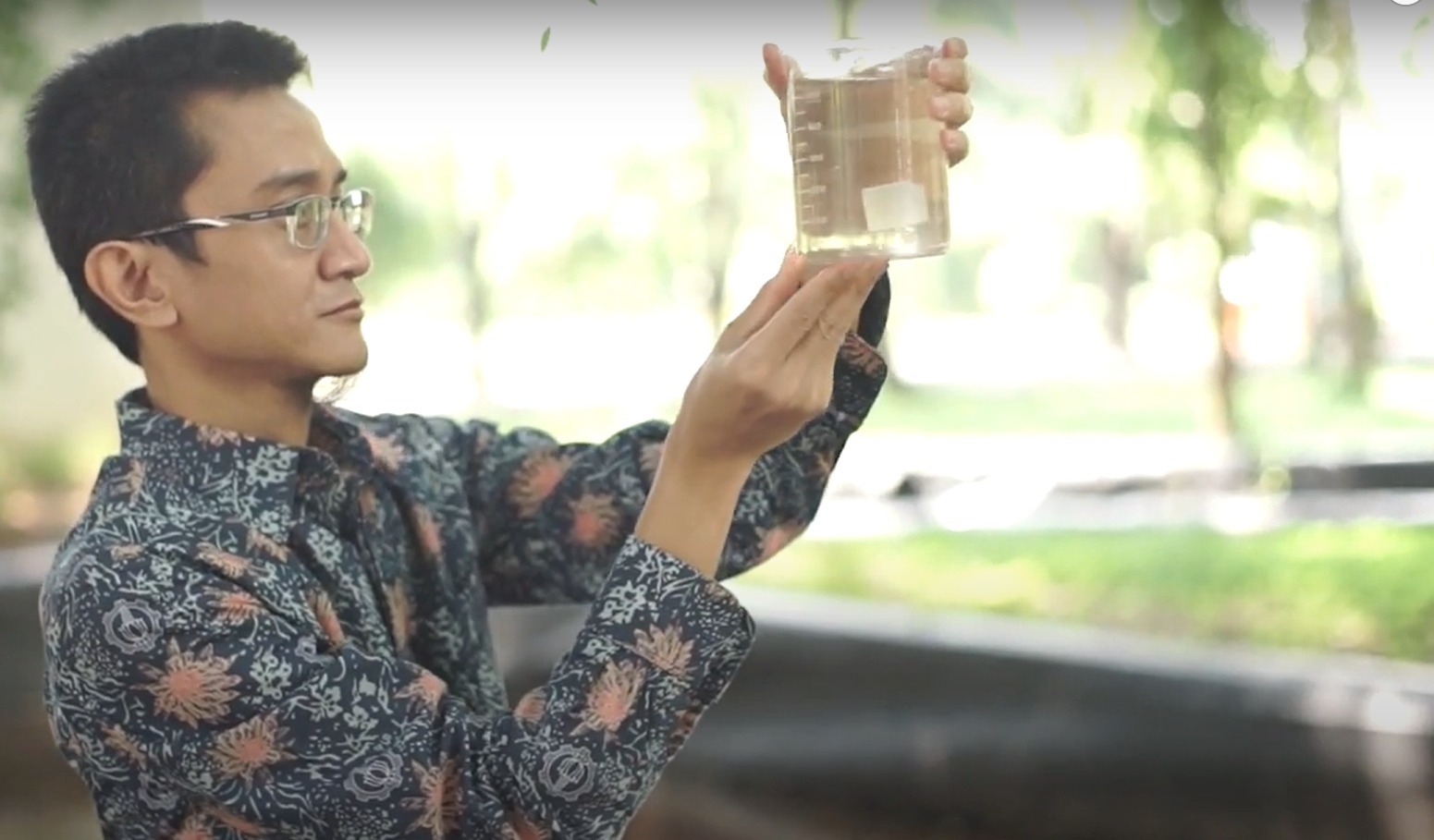
Prof Ir Arseto Yekti Bagastyo ST MT MPhil Ph.D. controls the results of liquid waste processing using electrodialysis technology
Zero Liquid Discharge (ZLD) is one of the waste processing and recovery concepts that Arseto uses as a reference in his research. This concept minimizes the release of water into environmental media and maximizes the utilization of waste substances to produce new products. “Wastewater that has had its pollutants removed is not immediately released into water bodies, but we immediately use it as clean water,” said the lecturer who completed his doctorate at the University of Queensland, Australia.
One of Arseto’s pioneering technologies that use the ZLD concept is hybrid electro-oxidation dialysis. This technology removes organic pollutants while simultaneously extracting mineral ions from wastewater. One of the products produced from this technology is struvite, namely slow-release fertilizer which can increase nutrient levels and soil fertility. “So, all the resources in waste can be used circularly,” said this lecturer, born in 1982.
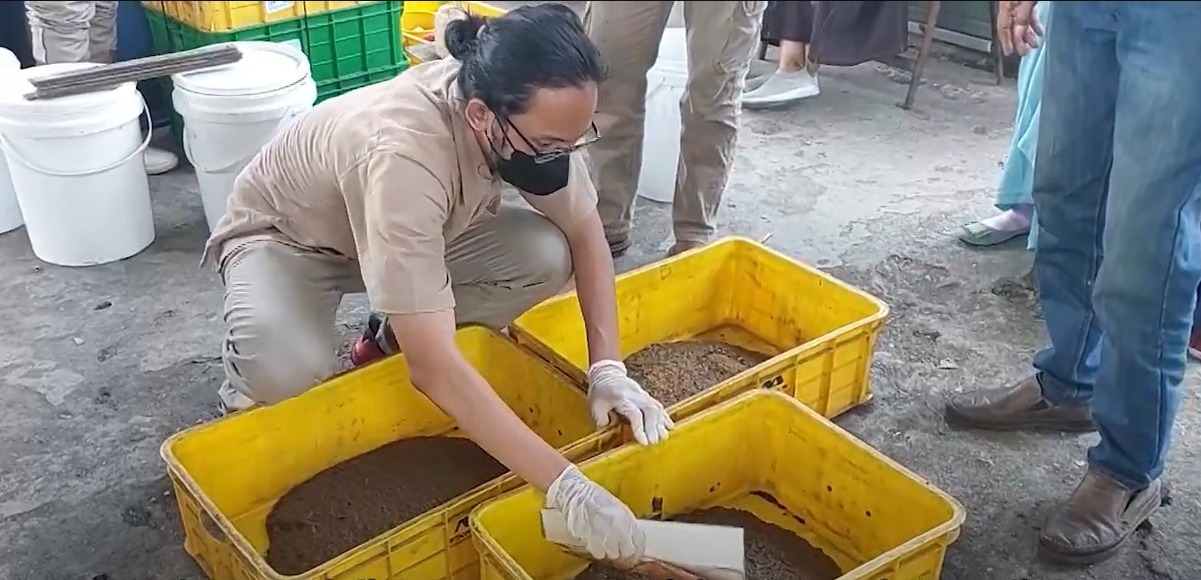
Processing organic waste using Black Soldier Fly bioconversion guided by Prof Ir Arseto Yekti Bagastyo ST MT MPhil PhD
Electrodialysis technology also correlates with the concept of nutrient recovery. For this technology, Arseto removes nutrients from alum sludge produced from the clean water treatment process. In fact, according to Arseto, the processed nutrients are safe if they are released directly into the environment. However, this technology streamlines the accumulation of nutrients from nature. “The term is a shortcut to getting nutrients because if we release them directly into the environment, we will take them back,” said the father of one child.
Not only that, the man born in Surabaya also uses the concept of zero waste management to process solid waste. He said the main steps that must be implemented are sorting and upcycling. For this reason, Arseto uses a bioconversion agent in the form of black soldier fly (BSF) larvae which can break down organic waste material into protein. “Later, the protein contained in BSF larvae can be used as animal feed or compost,” he said.
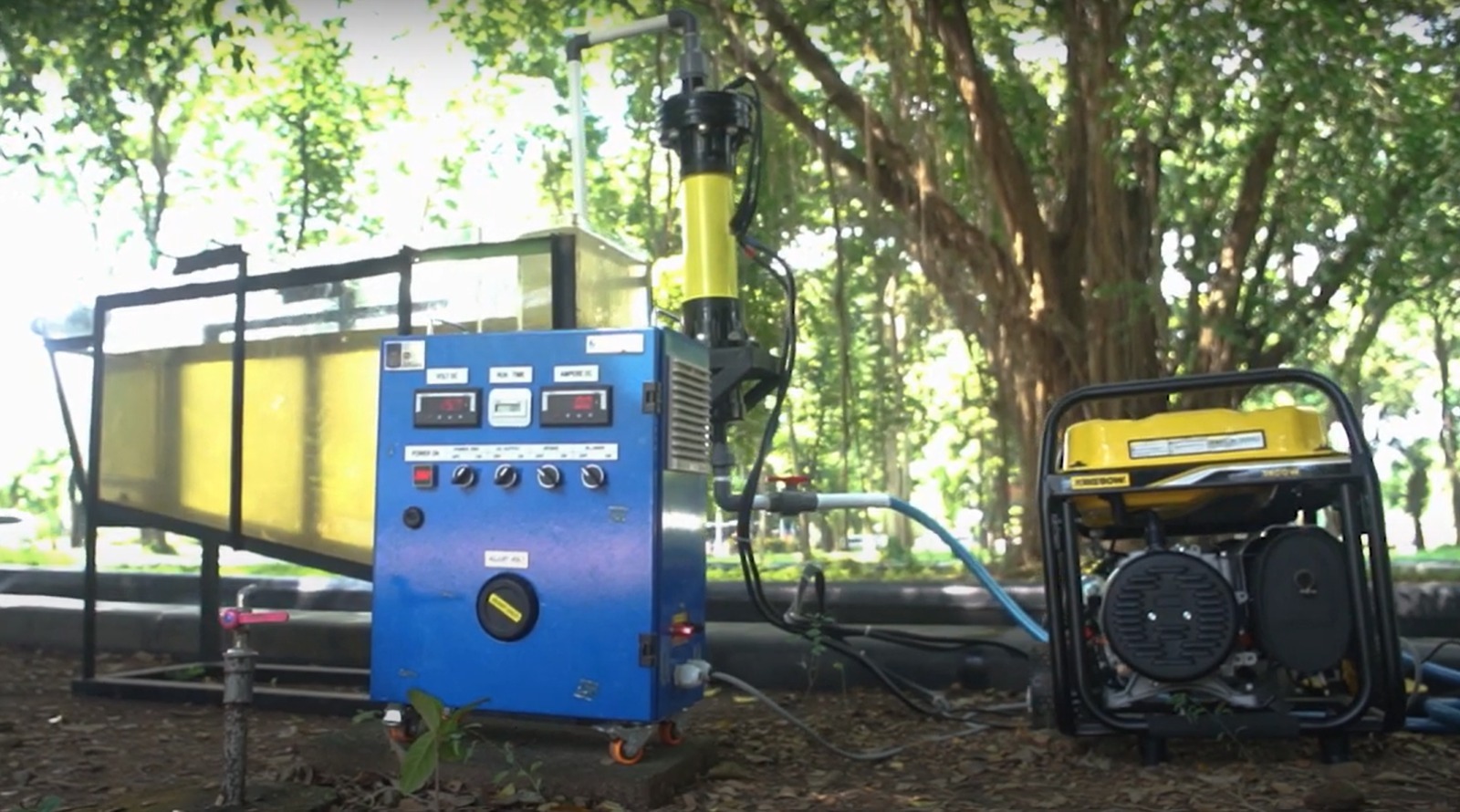
Mobile Clean Water and Sanitation tool that can process and recover waste using electrochemical technology by Prof. Ir Arseto Yekti Bagastyo ST MT MPhil PhD
Arseto’s dedication to researching waste processing and recovery has been developed over many years. He is continuing to modify the materials available in Indonesia so that the processing quality can be as good as the materials he studied in Australia. For example, local carbon that goes through the treatment process turns out to be able to become an electrode in leachate processing. “That’s a pretty good start with a much cheaper investment price,” he said proudly.
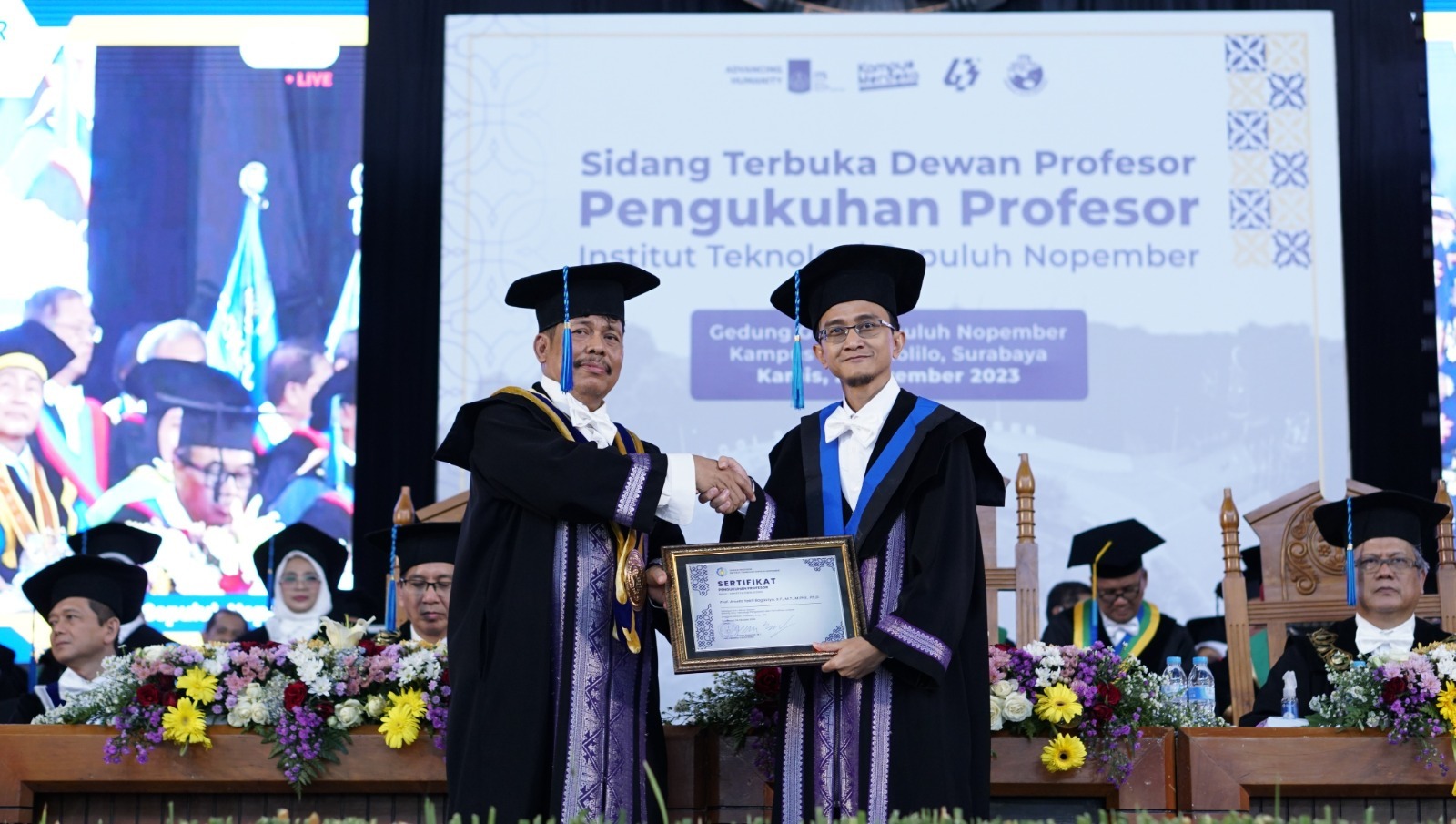
Chair of the ITS Professorial Council Prof Dr. Ir Imam Robandi MT (left) when handing over the inauguration certificate Prof Ir Arseto Yekti Bagastyo ST MT MPhil PhD
Through the mandate of the new title he obtained, Arseto hopes to continue to contribute and provide benefits. The youngest professor, who was inaugurated on November 2, believes that waste processing and recovery plays a role in creating sustainable interactions between nature and humans. “Through work and innovation, let’s together bring this nation towards technological independence with an environmental perspective,” he said. (ITS Public Relations)
Reporter: Difa Khoirunisa
Related News
-
Support from Various Parties Accompanies the Construction of the New ITS Medics Building
ITS Campus, ITS News — The Faculty of Medicine and Health (Medics) of Institut Teknologi Sepuluh Nopember (ITS) continues
November 22, 2023 16:11 -
ITS Builds Faculty of Medicine and Health Building to Produce Quality Doctors
ITS Campus, ITS News — In order to provide quality education and learning facilities in producing quality medical personnel
November 22, 2023 16:11 -
Antasena ITS Successfully Wins Champion Title at SEM 2025
ITS Campus, ITS News — The Institut Teknologi Sepuluh Nopember (ITS) automotive team has once again proves its excellence
November 22, 2023 16:11 -
Successfully Scoring a Hattrick, Sapuangin ITS Wins Urban Concept ICE SEM 2025
ITS Campus, ITS News — The Sapuangin Team of Institut Teknologi Sepuluh Nopember (ITS) has once again made a
November 22, 2023 16:11
